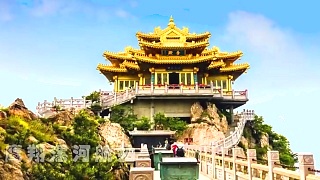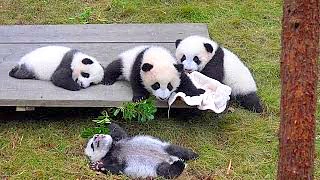
|
With Ben Cubbage ...
Welcome to Langmusi - A Serene Tibetan Village in GanSu Province
Introduction
Top Attractions
Activities
Local Culture
Local Cuisine
Visitor Tips
Getting There
Introduction
Langmusi, also known as Taktsang Lhamo in Tibetan, is a picturesque village nestled in the Tibetan Grasslands, straddling the border between GanSu and SiChuan provinces. Known for its serene beauty, Langmusi is a spiritual haven and an important cultural hub for the Tibetan people. The village is surrounded by rolling grasslands, majestic mountains, and crystal-clear rivers, offering a tranquil escape from the hustle and bustle of modern life.
Langmusi is famous for its Tibetan Buddhist monasteries, stunning natural landscapes, and vibrant Tibetan culture. It serves as a gateway to the vast Tibetan Plateau and is a popular destination for travelers seeking peace, spirituality, and a deeper connection with nature. Despite its remote location, Langmusi has retained its traditional charm and offers visitors a unique glimpse into the rich cultural heritage of the Tibetan people.
Top Attractions
Sertri Monastery
Sertri Monastery, also known as Taktsang Lhamo Kirti Gompa, is one of the two main monasteries in Langmusi. Located on the northern side of the village, this monastery is an important center for Tibetan Buddhism and is home to hundreds of monks. The monastery's stunning architecture, intricate murals, and peaceful atmosphere make it a must-visit for anyone interested in Tibetan culture and spirituality. Visitors can attend prayer sessions, observe daily rituals, and explore the monastery's various halls and chapels.
Kerti Monastery
Kerti Monastery, also known as Kirti Gompa, is the second major monastery in Langmusi. Situated on the southern side of the village, Kerti Monastery is slightly smaller but equally significant. The monastery is known for its vibrant religious festivals, where monks and locals gather to celebrate with colorful processions, music, and dance. The surrounding area is also ideal for short hikes, offering panoramic views of the village and the surrounding grasslands.
Namo Gorge
Namo Gorge is a breathtaking natural wonder located just outside Langmusi. This narrow gorge is carved by the Bailong River and is flanked by towering cliffs and dense forests. A walk through the gorge offers a peaceful retreat into nature, with the sound of the river, the chirping of birds, and the scent of wildflowers filling the air. The gorge is also home to several meditation caves used by monks, adding to its spiritual significance.
Sky Burial Site
The Sky Burial Site in Langmusi is a unique and culturally significant place where traditional Tibetan sky burials are conducted. This ancient funerary practice involves placing the deceased on a mountaintop to be consumed by vultures, symbolizing the cycle of life and death in Tibetan Buddhism. While tourists are generally not allowed to observe the ceremonies out of respect, the site is an important aspect of Tibetan culture and spirituality, and its location offers a serene view of the surrounding landscape.
Activities
Hiking and Trekking: Langmusi is a paradise for hikers and trekkers, with numerous trails leading through the Tibetan Grasslands, mountains, and valleys. Popular routes include hikes to Namo Gorge, visits to meditation caves, and treks to nearby Tibetan nomad camps.
Horseback Riding: Experience the traditional Tibetan way of life by exploring the grasslands on horseback. Local guides offer horseback riding tours that take you through scenic landscapes and offer insights into the nomadic culture of the region.
Cultural Tours: Immerse yourself in Tibetan culture by visiting local monasteries, attending prayer sessions, and learning about Buddhist rituals and traditions. Cultural tours often include visits to both Sertri and Kerti Monasteries, as well as interactions with local monks.
Photography: Langmusi's stunning landscapes, traditional Tibetan architecture, and vibrant culture make it a photographer's dream. Capture the beauty of the grasslands, the serenity of the monasteries, and the daily life of the Tibetan people.
Stargazing: Due to its remote location and high altitude, Langmusi offers exceptional stargazing opportunities. On clear nights, the sky is filled with countless stars, making it an ideal place to connect with the cosmos.
Local Culture
Langmusi is deeply rooted in Tibetan culture, and visitors to the village will have the opportunity to experience the rich traditions, spirituality, and way of life of the Tibetan people. The village is home to both Tibetans and Hui Muslims, and the blend of cultures adds to the unique charm of the area.
Tibetan Buddhism plays a central role in the daily life of the villagers, and the two main monasteries, Sertri and Kerti, are integral to the spiritual and cultural fabric of Langmusi. Festivals and religious ceremonies are celebrated with great enthusiasm, and visitors may have the chance to witness colorful processions, traditional music, and sacred dances.
The Tibetan nomadic culture is also prevalent in the surrounding grasslands, where nomads live in traditional tents and herd yaks and sheep. Visitors can learn about the nomadic way of life, including their customs, clothing, and food, by visiting nomad camps or interacting with local families.
Local Cuisine
The cuisine in Langmusi is a reflection of its Tibetan heritage, with hearty dishes that are well-suited to the high-altitude environment. Some must-try dishes include:
Yak Butter Tea: A traditional Tibetan drink made from yak butter, salt, and tea leaves. It has a unique flavor and is often consumed to provide warmth and energy in the cold climate.
Tsampa: A staple food in Tibetan cuisine, tsampa is made from roasted barley flour and is often mixed with yak butter tea to form a dough-like consistency. It is a versatile dish that can be eaten at any time of day.
Yak Meat Dishes: Yak meat is a common ingredient in Tibetan cuisine, and it is often used in stews, dumplings, and stir-fries. The meat is flavorful and rich, making it a popular choice among locals and visitors alike.
Momos: Tibetan dumplings filled with meat or vegetables and served with a spicy dipping sauce. Momos are a popular snack and are often enjoyed with tea.
Thukpa: A hearty noodle soup made with meat, vegetables, and sometimes yak butter. Thukpa is a warming dish that is perfect for the cool climate of Langmusi.
Visitor Tips
Altitude Awareness: Langmusi is located at an altitude of over 3,300 meters (10,827 feet), so it's important to be aware of altitude sickness. Take time to acclimatize, stay hydrated, and avoid strenuous activity in the first few days.
Best Time to Visit: The best time to visit Langmusi is from May to October when the weather is milder and the grasslands are lush and green. Winter can be extremely cold, with heavy snowfall making travel difficult.
Respect Local Customs: Langmusi is a deeply spiritual place, so it's important to respect local customs and traditions. Dress modestly, particularly when visiting monasteries, and ask for permission before taking photos of people or religious sites.
Stay on Designated Paths: When exploring the grasslands and surrounding nature, stick to designated paths to avoid damaging the fragile ecosystem and to ensure your safety.
Language: While Mandarin is spoken in Langmusi, many locals, particularly older residents and monks, speak Tibetan. Learning a few basic phrases in Tibetan can enhance your experience and help you connect with the local community.
Getting There
Langmusi is located in a remote area, but it is accessible by several means:
By Air: The nearest airport is Xiahe/Gannan Airport, which is about 90 km (56 miles) from Langmusi. From the airport, you can hire a taxi or take a bus to the village. Flights to Xiahe/Gannan Airport are available from major cities such as ChengDu and Xi'An.
By Bus: Buses run regularly from nearby towns such as HeZuO, XiaHe, and LuQu to Langmusi. The bus ride offers scenic views of the Tibetan Plateau and is an affordable option for reaching the village.
By Car: Renting a car or hiring a private driver is a convenient way to reach Langmusi, especially if you plan to explore the surrounding areas. The drive from HeZuO to Langmusi takes about 4 hours and offers stunning views of the grasslands and mountains.
By Train: The nearest major train station is in Lanzhou, GanSu's capital. From Lanzhou, you can take a bus or hire a car to reach Langmusi. The journey from Lanzhou takes approximately 8-10 hours.
|
 YanQi Lake 雁栖湖 at dusk, HuaiRou, BeiJing
YanQi Lake 雁栖湖 at dusk, HuaiRou, BeiJing





















